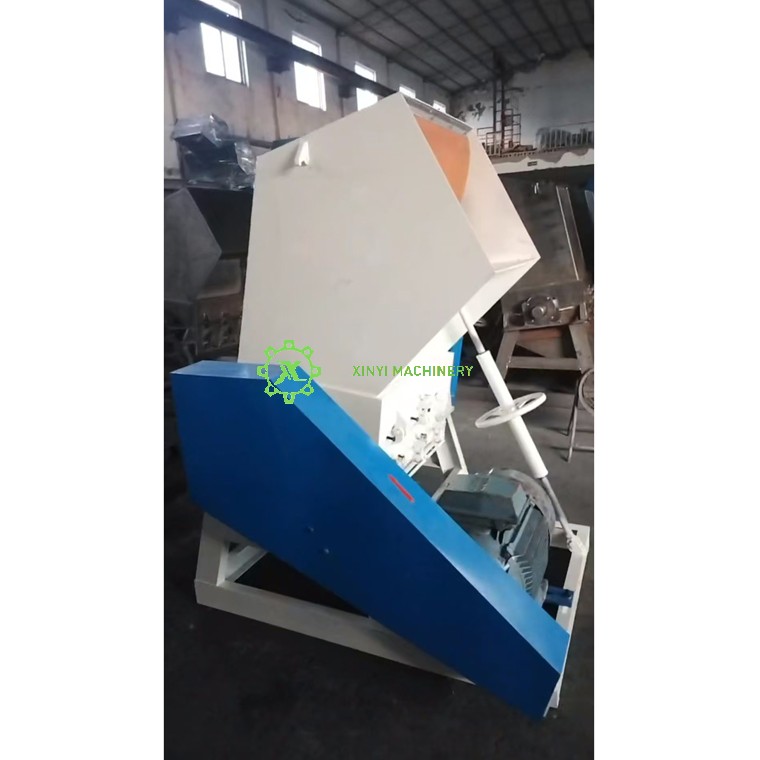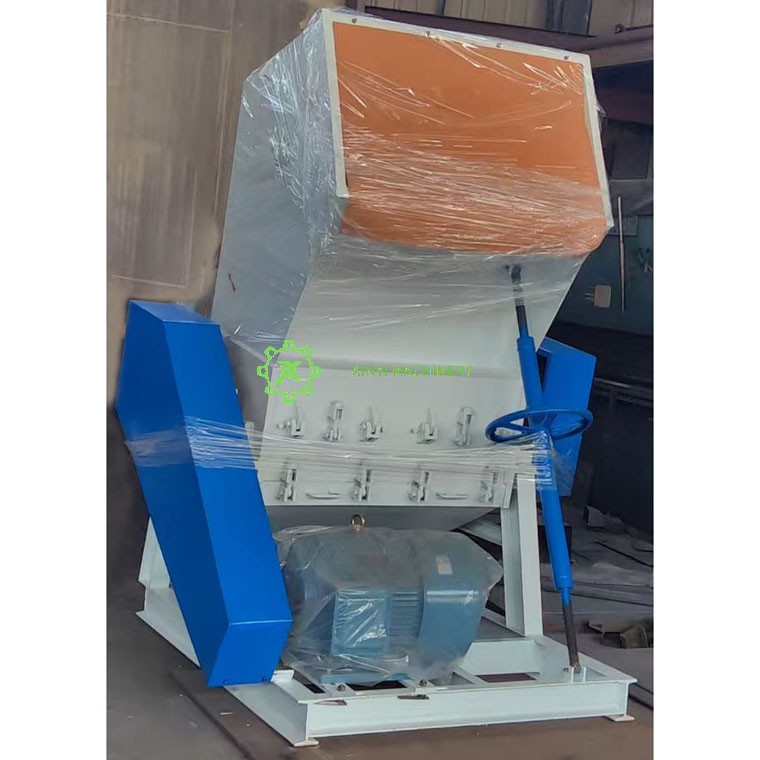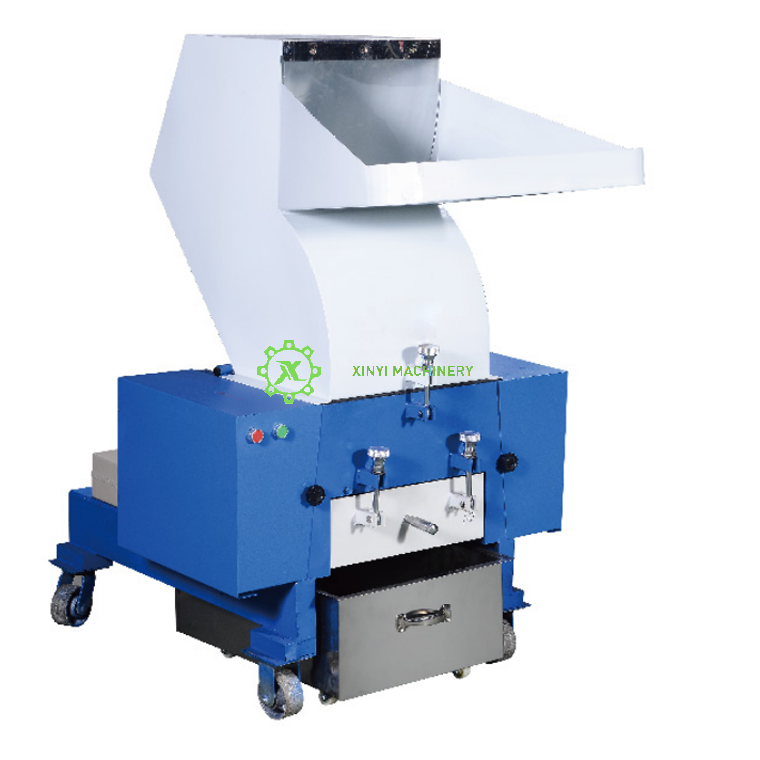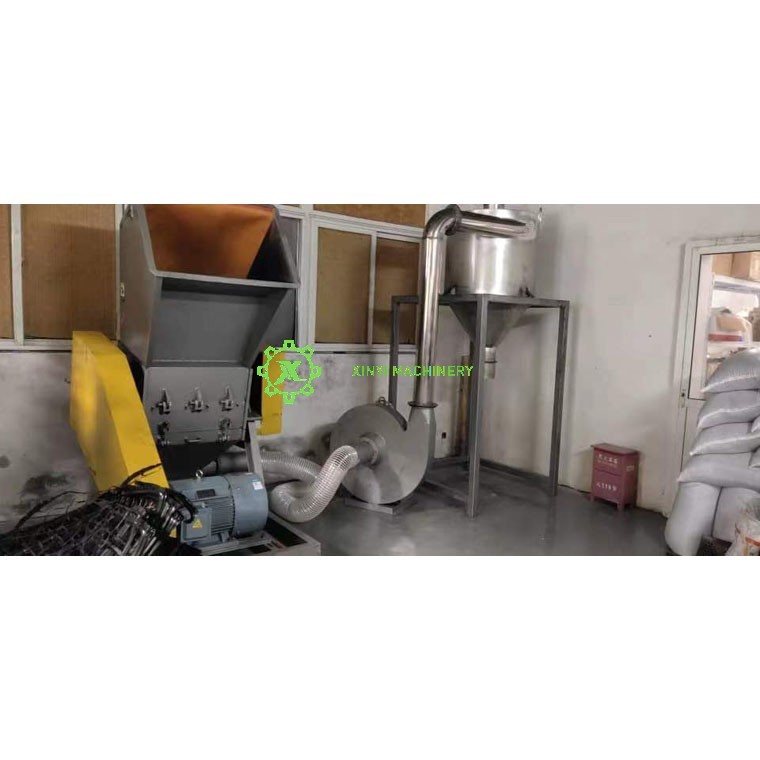Summary of Plastic Crusher Machine Costs
1. Crusher Machine Price by Output Capacity
This is the core cost of the machine itself, which is primarily determined by its size, power, and throughput capacity.
Output Capacity (kg/hr) | Estimated Price Range (USD) | Typical Motor Power | Best For |
300 - 500 kg/hr | $5,000 - $7,000 | ~20-25 HP | Small workshops, low-volume recycling, specific material types. |
500 - 800 kg/hr | $7,000 - $12,000 | ~40-50 HP | Small to medium-sized recycling operations. |
800 - 1200+ kg/hr | $9,500 - $15,000+ | ~60-75 HP | Medium to large recycling plants, continuous operation. |
*Note: Prices can extend significantly higher ($20,000 - $50,000+) for very large, centralized crushers capable of processing entire bales or several tons per hour.*
2. Key Factors That Influence the Cost Within These Ranges
As you know, the price for a machine within the same output range can vary. You can use these points to explain the variance to your customers:
· Rotor Design: Open vs. closed rotor designs impact cost and are suited for different materials (e.g., films vs. rigid plastics).
· Blade Quality & Configuration: The number of blades, their material (e.g., 9CrSi tool steel, hardened alloy), and their arrangement (e.g., staggered scissors cut) are major cost drivers.
· Motor Brand & Quality: A reputable, high-efficiency motor from a known brand will cost more than a generic equivalent.
· Construction & Material Thickness: Heavier-duty steel frames and chambers offer better durability and noise reduction but at a higher cost.
· Automation & Control Systems: Basic manual start/stop is standard. Systems with automatic reverse, overload protection, and programmable logic controllers (PLCs) will be more expensive.
· Brand & Origin: Well-established European, North American, or Japanese brands command a premium. Machines from China or Taiwan often offer competitive pricing, with quality varying significantly between manufacturers.
3. Cost of Essential Auxiliary Equipment
As you rightly pointed out, the crusher is often just one part of a system.
· Conveyor Belt System: $2,500 - $5,000+
o Essential for feeding material efficiently and safely into the crusher hopper. Price depends on length, width, and power.
· Storage Silo / Hopper: $2,000 - $3,500+
o Used for storing and feeding crushed material (flakes) to the next stage (e.g., washing line, extruder). Size and material (stainless vs. carbon steel) affect price.
· Magnetic Separator: $2,000 - $5,000
o Often integrated into the conveyor to remove ferrous metals and protect the crusher blades.
Total for Basic Auxiliary Setup: As you stated, adding a conveyor and a silo typically adds $4,500 - $7,000+ to the total project cost.
4. Additional Cost Considerations for Buyers
· Shipping & Logistics: This can be a significant cost, especially for overseas orders. It must be factored into the total budget.
· Installation & Commissioning: Some suppliers include basic setup, while others charge extra or require a local technician.
· Spare Parts Kit: Budgeting for an initial set of spare blades, screens, and bearings is highly recommended to minimize downtime.
· After-Sales Service & Warranty: A machine with a strong warranty and accessible technical support is often worth a slightly higher initial investment.
Conclusion for Buyers
For a small to medium operation looking to process 500-800 kg/hr, they should budget approximately $10,000 - $17,000 for a complete, functional system (crusher + basic auxiliary equipment).
The experience confirms that while price is a critical starting point, the best value comes from matching the machine's specifications to the specific material type (PET bottles, HDPE lumps, film, etc.) and production goals, while also considering the supplier's reputation for quality and support.







